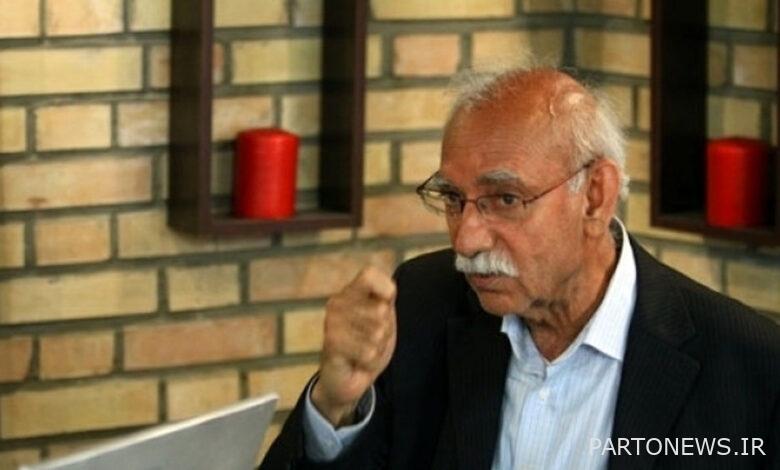Molazhi: Through the Chabahar Corridor to Afghanistan, the economy of the region is tied to Iran / The flow of anti-Afghanism in Iran is suspicious

Economy Online _ Prasto Bahrami Rad; Mullah Abdul Ghani Baradar, the economic deputy of the Taliban government, arrived in Tehran at noon today (Saturday, November 13) at the head of a high-ranking government delegation.
The purpose of the visit of Baradar and his accompanying delegation is to meet and consult with Iran’s economic officials in order to improve the level of commercial and economic cooperation, develop bilateral relations and examine the field of further cooperation in the field of trade, transit, investment, customs cooperation and financial transactions.
Pir Mohammad Molazhi, a senior expert on Afghanistan issues, said regarding the visit of this economic delegation to Iran: We have to consider one fact that we have many historical and cultural commonalities with Afghanistan. The truth is that the competition in Afghanistan is very intense both at the regional level (between Islamic and neighboring countries) and at the global level. In the current situation where the Taliban is not recognized, we know that China is very quickly, quietly and more or less trying to take over the main foundations of Afghanistan’s economy and make agreements with the Taliban. Iran, Pakistan and other countries in the region have won the competition both at the international level (Europe and America) and at the regional level.
He further explained: Therefore, if Iran does not deal with the problem realistically in this space, I think we will have a strategic loss. From this point of view, it is necessary for the Iranians to fully coordinate with Afghanistan economically. Afghanistan has no access to Central Asia and international waters. Iran can activate the corridor from Chabahar to Afghanistan. A railway line will also be built, although there is a lot of discussion and hadith surrounding it. Also, a highway should be built that can direct the region’s economy towards Iran and Iran’s interests in the future. Unfortunately, the Americans are trying to get Iran out of the main routes and corridors. Iran leaves the oil and gas transit routes and also leaves the north-south and east-west corridors. Americans have other plans to limit Iran in this field.
This expert stated: Therefore, it is necessary for Iran’s political, security, economic and national interests to work hand in hand so that Iran can explore areas with Afghanistan to be present in the corridors of the region. The truth is that Afghanistan and the Taliban group do not have enough specialized forces and Iran has enough specialized forces in all fields. Iran’s private sector can invest in industry and trade. For example, instead of poppy cultivation, Iranians can go and plant wheat there, and in this way we can also supply our own wheat.
Malazahi said: Afghanistan has the biggest problem in terms of fuel. While Iran has gas and oil. Now it enters Afghanistan in the form of smuggling, but if Iran can supply Afghanistan’s gas in an organized manner, it will get a very favorable market of 35-36 million. It seems that considering the set of these conditions, this impression is strengthened that we should separate economic, political and ideological issues. If we go forward with an ideological point of view, I think our defeat is certain. We must move forward from an economic and political point of view to be able to work with the Taliban.
Regarding anti-Afghanism in Iran, this expert said: The current that makes anti-Afghanism in Iran is a suspicious current. That is, there is a mentality within them that they think that every Afghan who enters Iran is a conspirator. While the reality is that they seek refuge in neighboring countries due to insecurity, poverty and misery. Iran is a place of work and they have an income that they use here and send a part to their families. In addition, their role in Iran’s economy is colorful.
He went on to clarify: Some people say that Afghans create security issues, while they are very tolerant for fear of being deported. In some cases, a problem may arise between an Afghan and an Iranian; But if we generalize this to all Afghans, who are nearly 5 million people in Iran according to statistics, it will not be realistic. Perhaps this view has its origin in the historical mentality of Iranians towards the Pashtun people. I think these discussions are misleading. Many jobs that Iranians are not willing to do, Afghans do with lower salaries. They also played an important role in Iran’s economic development in these 40 years.

